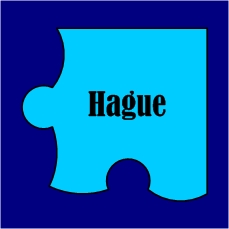Philippines to host 4th Hague Conference on Private International Law Asia-Pacific Regional Conference UPDATED

The conference runs from October 26 -28, 2011 in Makati City. Special Advisor for International Children’s Issues Ambassador Susan Jacobs is travelling today and will attend the conference.
According to Ambassador Jacobs travel announcement, “During this conference, Ambassador Jacobs will engage with foreign representatives of countries that are signatories to The Hague Convention on Protection of Children and Co-operation in Respect of Intercountry Adoption and the Convention on the Civil Aspects of International Child Abduction.
Ambassador Jacobs will further promote Hague Convention partnerships with additional countries to help create transparent, consistent, and ethical practices in intercountry adoption as well as establish procedures to ensure prompt return of children to their habitual residence in international parental child abduction cases.”
The agenda for the conference can be found in this pdf file.
According to Philippines to host the 4th Hague Conference on Private International Law Asia-Pacific Regional Conference [Manila Bulletin Publishing Corporation 10/25/11 by Roy C. Masaba] , the Department of Foreign Affairs (DFA), says that ” around 75 international delegates from 24 countries and 99 Philippine participants from governmental and non-governmental agencies and the academe will be attending the Conference which will be hosted in conjunction with the Permanent Bureau of the HCCH
The event, to be held at the Mandarin Oriental Hotel in Makati City, is co-hosted by the Philippine Judicial Academy and the University of the Philippines College of Law in commemoration of the latter’s centennial anniversary.
The Conference will provide member and non-member States in the region a forum to discuss the implementation and practical operation of the various HCCH Conventions including the Inter-country Adoption Convention, Apostille Convention, Service Convention and Child Support Convention.”
Update: The Hague’s report from October 28, 2011 can be found in this 6-page pdf. A few excerpts are pasted below:
Intercountry Adoption
“In relation to the 1993 Intercountry Adoption Convention:
Recognized that intercountry adoption should be seen as a shared responsibility of the States of Origin and the Receiving States, to ensure the successful operation of the Convention in the Region;
Acknowledged that the Philippines has provided excellent leadership in the development of good practices in the implementation of the Convention, by emphasizing the best interests of the child as the primary consideration in intercountry adoptions; and
Acknowledged the importance of the Convention as the appropriate legal and administrative framework for intercountry adoption and encouraged Non-Contracting States to consider acceding to the Convention. ”
Apostille
“In relation to the 1961 Apostille Convention:
Recognized that the Convention greatly facilitates the efficient and speedy authentication of public documents emanating from one Contracting State to be produced in another Contracting State
Recognized the role of the Convention in facilitating foreign investment, as emphasized by the World Bank;
Emphasized the critical role of the Competent Authorities in giving efficacy to the Convention and its operation, and in that regard noted the importance of continuing training for staff;
Recognized the increasing acceptance and use of e-Registers and e-Apostilles and encouraged newly acceding States as well as other Contracting States to implement this technology. ”
Child Abduction
“In relation to the 1980 International Child Abduction Convention and 1996 International Child Protection Convention:
Reaffirmed the relevance in the Region of these Conventions and the importance of international co-operation for the protection of children moving across borders;
Welcomed the current efforts made by the Republic of Korea towards acceding to the 1980 Convention and encouraged other States in the Region to become parties to follow this example;
Recognized the value of the International Hague Network of Judges in facilitating the implementation of the and encouraged the active participation of judges in direct judicial communication; and
Affirmed the benefits of mediation and other forms of amicable resolution to resolve cross-border family law. ”
REFORM Puzzle Piece
These conclusions need to be understood. We all need to be on the look out for how these will be implemented, especially in countries like Vietnam that are reopening.


Recent Comments